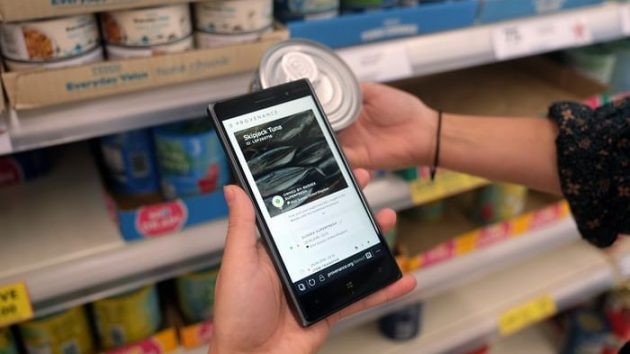Technology can now track the illegal fishing industry. A new concept in digital technology has been trialed to monitor where fish come from, beginning with the trawler and continuing to the supermarket. This is a breakthrough that could assist ending human trafficking and exposing illegal fishing. It is called blockchain and was first utilized with Bitcoins. It is expected to revolutionise the finance, property and food sectors replacing traditional contracts, paperwork and identification methods.
A digital ledger that records of information that is easily available to everyone, making it possible to give the details and origins of fish. It reveals where the fish were caught, processed and sold. Alone, it can’t stop illegal fishing, but it shows the supply chain so that anyone can make sound decisions.
With the seafood industry notorious for human rights abuses and illegal fishing, campaigners hope the technology, piloted by a UK-based company Provenance, could help retailers, manufacturers and restaurants prove the origins of their fish. “Building in mechanisms to deliver transparency from net to plate is central to eradicating illegal, unsustainable fishing and the human rights abuses that have plagued parts of the seafood production sector,” said Steve Trent, executive director at the Environmental Justice Foundation (EJF).
Today, all this information is tracked by paper records as well as the tags on the fish. The new blockchain approach sees local fishermen send SMS messages to register their catch on the blockchain. This identification is then transferred to a supplier along with the catch, with any subsequent move, for example processing or tinning, also recorded.
Provenance founder Jessi Baker said that the technology currently adds a “few pence” to the price of the final product so is likely to be used first on premium fish products, or even wine or olive oil. The cost will need to come down to “points of a pence” to be vi..able for canned and processed fish produce, she said. “We are desperately in need of a solution. We want to help support fish that is caught sustainably and verify these claims down the chain to help drive the market for slavery-free fish. This pilot shows that complex, global supply chains can be made transparent by using blockchain technology.”







Freedom United is interested in hearing from our community and welcomes relevant, informed comments, advice, and insights that advance the conversation around our campaigns and advocacy. We value inclusivity and respect within our community. To be approved, your comments should be civil.
[…] developments will offer the anti-slavery movement more solutions in 2018. Already we are seeing blockchain technology used to monitor fishing catches, satellites that help identify sites of modern slavery, and apps to prevent brick kiln workers in […]